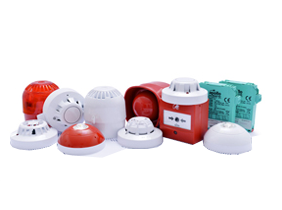Fire alarm systems play a vital role in ensuring early fire detection, enabling a swift response, and minimizing damage or loss of life. However, not all fire alarms offer the same level of protection. Many businesses and industries rely on FM-approved fire alarms, which are certified to meet strict safety and performance standards.
This article explores the requirements for FM-approved fire alarms and how they contribute to ensuring safety and regulatory compliance.
What Is FM Approval for Fire Alarms?
FM Approval is a globally recognized certification issued by FM Global, one of the world’s leading insurance and risk management companies. This certification verifies that products have passed rigorous testing for quality, performance, and reliability in fire safety. An FM-approved fire alarm system has undergone a comprehensive evaluation, ensuring it will function effectively during real-world fire emergencies.
Key FM Approval Requirements for Fire Alarm Systems
FM Approvals imposes stringent criteria for certifying fire alarm systems, focusing on fire detection performance, durability, power reliability, and more.
1. Fire Detection Performance
A fire alarm system’s primary function is to detect a fire as early as possible. FM-approved fire alarms must demonstrate high sensitivity and accuracy in detecting fires, whether they originate from smoke, heat, or flames. These systems are designed to provide early warnings while minimizing false alarms triggered by environmental factors such as dust, steam, or non-fire-related smoke.
2. Durability in Harsh Conditions
Fire alarms often need to function in harsh environments, such as industrial facilities, manufacturing plants, or marine settings. FM-approved fire alarms are tested for durability in extreme conditions like high humidity, corrosive environments, and extreme temperatures. The system must maintain its performance and reliability in these environments, ensuring it operates effectively during emergencies.
3. Power Reliability and Backup Systems
To earn FM Approval, fire alarm systems must be equipped with reliable power sources. They should have backup power supplies, such as batteries or generators, that activate automatically in the event of a power failure. This ensures the system will remain operational, even during a blackout or other disruptions, making continuous fire detection possible.
4. Audibility and Visual Signals
FM-approved fire alarms must provide clear and effective notifications to building occupants. This includes both audible alarms, like loud sirens, and visual signals, such as flashing lights. The alarms must be designed to be noticeable to everyone in the area, including people with hearing or visual impairments. FM Global tests the volume and clarity of these signals to ensure they are effective, even in noisy environments.
5. Alarm System Integration
Modern fire alarm systems often integrate with other safety systems, such as fire suppression systems, emergency lighting, and ventilation controls. FM-approved fire alarms are tested for their ability to work in tandem with other systems, ensuring that they activate properly during a fire. For example, an alarm system might be connected to a fire suppression system, which would activate automatically to contain the fire.
The FM Approval Process for Fire Alarm Systems
Achieving FM Approval involves a detailed and multi-step process to ensure fire alarms meet the highest standards.
1. Design Evaluation
FM Global begins by conducting a thorough review of the fire alarm’s design, including its materials and components. This ensures the product is built to withstand the challenges it might face during a fire emergency.
2. Performance Testing
Fire alarms must undergo extensive testing to verify their ability to detect fires accurately, even in challenging conditions. FM Global tests for early fire detection, system sensitivity, and the ability to distinguish between a real fire and false alarms.
3. Environmental and Durability Testing
The system is subjected to environmental testing, including exposure to extreme temperatures, humidity, dust, and corrosive elements. This ensures the alarm can function reliably under adverse conditions.
4. Factory Inspections and Quality Control
FM Global also inspects the factory where the fire alarms are manufactured to ensure high-quality production standards. These inspections verify that the alarm will consistently meet the approval criteria.
5. Ongoing Audits
After a product has received FM Approval, regular audits ensure it continues to meet FM standards. This includes ongoing product testing and factory inspections to maintain certification integrity over time.
Why FM Approved Fire Alarms Matter for Regulatory Compliance
For many industries, using FM-approved fire alarm systems is necessary to meet local and international fire safety regulations. Fire codes often mandate the use of approved equipment to ensure the highest levels of safety.
Additionally, insurance companies, including FM Global, often require FM-approved systems in high-risk environments for businesses to qualify for coverage. These systems demonstrate a commitment to minimizing fire risks, which can help businesses reduce insurance premiums and comply with safety standards.
The Importance of FM Approval in High-Risk Environments
Industries such as data centers, healthcare facilities, and manufacturing plants are particularly dependent on FM-approved fire alarms. These environments are highly vulnerable to fire risks, and early detection is critical to preventing damage and loss of life.
Using FM-approved fire alarms in these settings provides peace of mind, knowing that the system has been rigorously tested to perform under real-world conditions.
Conclusion
FM-approved fire alarms offer a reliable, tested solution for protecting people and property from fire hazards. By meeting the highest standards for performance, durability, and reliability, these systems provide businesses with a trusted means of ensuring fire safety and regulatory compliance.
For industries where fire risks are significant, investing in FM-approved fire alarm systems ensures that businesses are better protected, employees are safer, and regulatory requirements are met.

